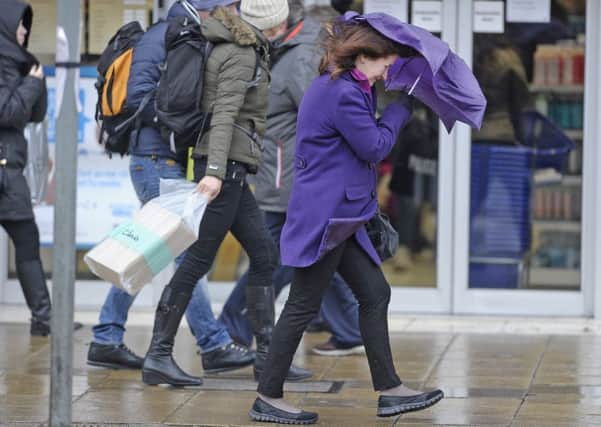Squeeze on household spending dampens economic outlook
This article contains affiliate links. We may earn a small commission on items purchased through this article, but that does not affect our editorial judgement.


The fall in sterling’s value may see growth falter this year amid warnings over an inflation shock, which could lead to a cost of living crisis for many.
The Office for Budget Responsibility (OBR) has also revealed the economy is set to take a hit of almost £60 billion over the next five years due to the Brexit vote, while slashing growth forecasts and predicting higher-than-previously-expected borrowing.
Advertisement
Hide AdAdvertisement
Hide AdIn August, the Bank of England (BoE) launched its action to shore up the economy, unveiling a package of measures worth more than £170bn and halving the base rate to 0.25 per cent.
Economists believe rates will be held at this level throughout the whole of 2017, although with the uncertainties over the UK’s negotiations to untangle itself from the EU, for example, the future is unclear.
Howard Archer, chief economist at IHS Global Insight, said: “Given major uncertainties over the UK economic outlook as Brexit gets under way and develops, nothing can be ruled out.”
There were some positive signs, with robust preliminary estimates of growth in the third quarter revised up to 0.6 per cent, showing output holding firm on the 0.6 per cent notched up in the previous period and defying expectations of a sharp slowdown.
Furthermore, the central bank binned plans for more rate reductions at its November meeting and raised growth forecasts for this year and next as the economy shrugged off a Brexit hit.
But this cheery outlook was overshadowed as it sent out a warning shot to households over soaring inflation, which surged to a two-year high of 1.2 per cent in November in a sign that the pound’s drop since 23 June is starting to hit prices.
The BoE has predicted inflation could reach 2.7 per cent in 2017, while think-tank the National Institute of Social and Economic Research has said it could peak at about 4 per cent in the second half of the year.
Policymakers said in December that activity had been “remarkably steady”, but growth is set to ease further to 0.4 per cent in the final quarter, and the BoE has said cracks are beginning to show in business surveys, confirming expectations of a slowdown in 2017, with uncertainty resulting in spending decisions being put on hold.
Advertisement
Hide AdAdvertisement
Hide AdCombined with a potential pull-back in consumer spending, this will hit the economy and see rates remain at rock bottom for some time yet, according to economists.
John Hawsworth, chief economist at PwC, believes that while recession is likely to remain off the cards in 2017, the outlook is mixed across different sectors.
He said parts of the UK economy “should remain relatively strong, particularly in the consumer services, tourism and technology sectors.
“But manufacturing and construction may continue to struggle and the City could suffer some loss of business to other EU countries due to the anticipated impact of Brexit.”
Additionally, Scottish Retail Consortium director David Lonsdale in his New Year message warned that although the end of 2016 had seen modest signs of improvement in retail sales north of the Border, there were hints that retailers face “formidable challenges” over the next year as rising inflation and costs started to bite and consumer spending power squeezed. “In many respects our economy lives or dies by what happens to consumer spending,” he said.
